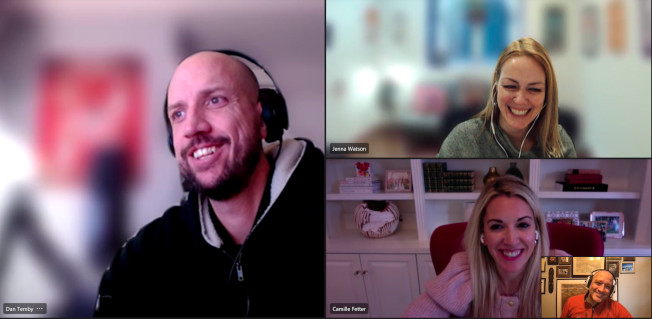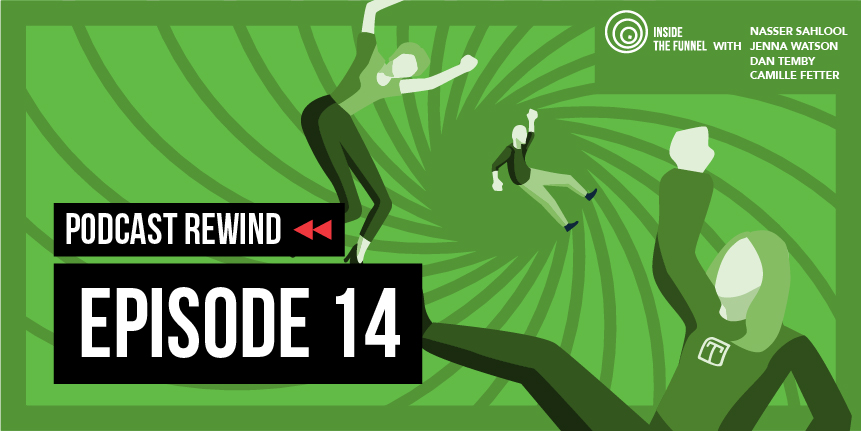Employers know it. Employees know it. The demand for talent has never been fiercer during the “Great Resignation”, one of the pandemic’s most complex and nuanced aftershocks. In the digital sector especially, we are witnessing a sea change in employer/employee relationships, from remote working arrangements to the rise of pay transparency. But how should businesses respond?
For the latest on recruitment, we sat down with Talentfoot founder and CEO Camille Fetter. Specializing in executive talent acquisition for more than 20 years, she’s seen and done it all. Read on for her expert take on what’s driving the Great Resignation and what’s likely to come next.

-
Think twice about hybrid
As we move into year three of the pandemic (let that sink in), people are reassessing their fundamental relationships with work. In the good column, employees are more empowered to control how their personal and professional lives intertwine. In some fields, such as digital media, productivity has skyrocketed as a result. On the flip side, burnout has become a major issue. Spending eight hours every day on Zoom without the natural social asides—or even feeling like there’s time in the day for a breather—is taking its toll on morale.
So, is the solution to jump start “back to normal” schemes with a hybrid work model? Not necessarily. Larger organizations in particular are made up of diverse teams who will never fully align on hybrid, fully remote, or in-person arrangements. As such, abandoning a flexible approach and instead mandating in-person requirements may well alienate employees. Camille has seen it firsthand:
We had one agency, very predominant agency, in our industry that rolled out hybrid expectations. And our phones were ringing off the hook within 15 minutes of this email going out.
Employers need to be intentional about how and when in-person collaboration happens. Time in the office will need to have distinct purpose—whiteboarding, for instance—otherwise it will feel like the on-site equivalent of working from home, the only difference being employer control and oversight.
-
Are leaders setting the right tone?
Culture can make or break an organization, and the tone is usually set at the executive level. As Camille puts it, people don’t leave companies—they leave leaders. If the Great Resignation is anything, it’s a call to challenge the assumed status quo of working structures.
Some forward-thinking organizations are responding by creating new c-suite roles like Chief Collaboration Officer, whose purpose is to focus almost exclusively on work agendas, updating internal processes, and determining how to bring the best out of departments, teams, and individuals. To get corporate leadership and culture moving in the right direction, Camille suggests the following:
- 🤝 Be human. Leaders are fully expected to show empathy and even vulnerability.
- 🎓 Help employees advance with continuing training and education.
- 🎤 Bring in fresh perspectives, from keynote speakers to executive coaches, to inspire and develop talent.
- ⭐️ Articulate how each and every role connects to your organization’s greater mission.
-
Agencies vs. in-house teams
Throughout the history of marketing, talent has generally developed in agency settings before eventually ending up in clientside roles. Camille, though, has noticed that clientside organizations are comparatively more demanding about on-site requirements, which appears to have paused the conventional agency-to-client talent migration. Is the pendulum swinging away from in-house and towards agency? Quite possibly, especially as perceptions around agency roles—namely that they’re highly pressured and offer poor work-life balance—begin to erode.
On both sides of the equation, relatively junior staff are being encouraged to remain loyal with the sugar rush of promotions, fancy new job titles, and sizeable raises. In this mad scramble for talent, Camille is noticing that clientside organizations are struggling to evaluate agency talent and, as a result, are hiring specialists into generalist positions. Similarly, senior agency talent coming from mostly strategic roles are having to retool in order to deal with technical, tactical, sales-driven responsibilities upon making the leap to equivalent roles on the client side. The Great Resignation is only exacerbating disconnects like these.
-
Demand for pay transparency is growing
Pay staying personal may have been the norm 30 years ago, but that may not be the case in the near future. Social media has put a megaphone to conversations surrounding pay transparency. Everything from Twitter campaigns like #shareyoursalary to employees going viral on TikTok for revealing salaries has fired up advocates pushing for transparency as an essential step towards pay equity.
Oh! Before I forget — if you apply for my old job as Senior Travel Reporter, you should ask for no less than 115k, a signing bonus &a relocation bonus if you’re moving to NYC. In full transparency, I was at 107k. I believe being transparent is one way to achieve equity in media.
— Victoria M. Walker (@vikkie) February 2, 2022
Camille believes the pay transparency movement is not a short-term trend. In fact, it’s even being codified into law, with new legislation like Colorado’s Equal Pay For Equal Work Act and New York City requiring pay disclosure for any position in the city. How should employees factor in pay scale intel? Camille counsels caution. Her top tip is to make sure job offers are in line with the market and not over-inflated. Ending up overpaid for a particular skill set may make you a prime candidate for cuts further down the line.
The conversation doesn’t stop here!
Whether you’re an employee or an employer, the Great Resignation spells out significant changes for the workforce as we know it. Want the full picture? Listen to Dan, Jenna, and Nasser’s full conversation with Camille.




